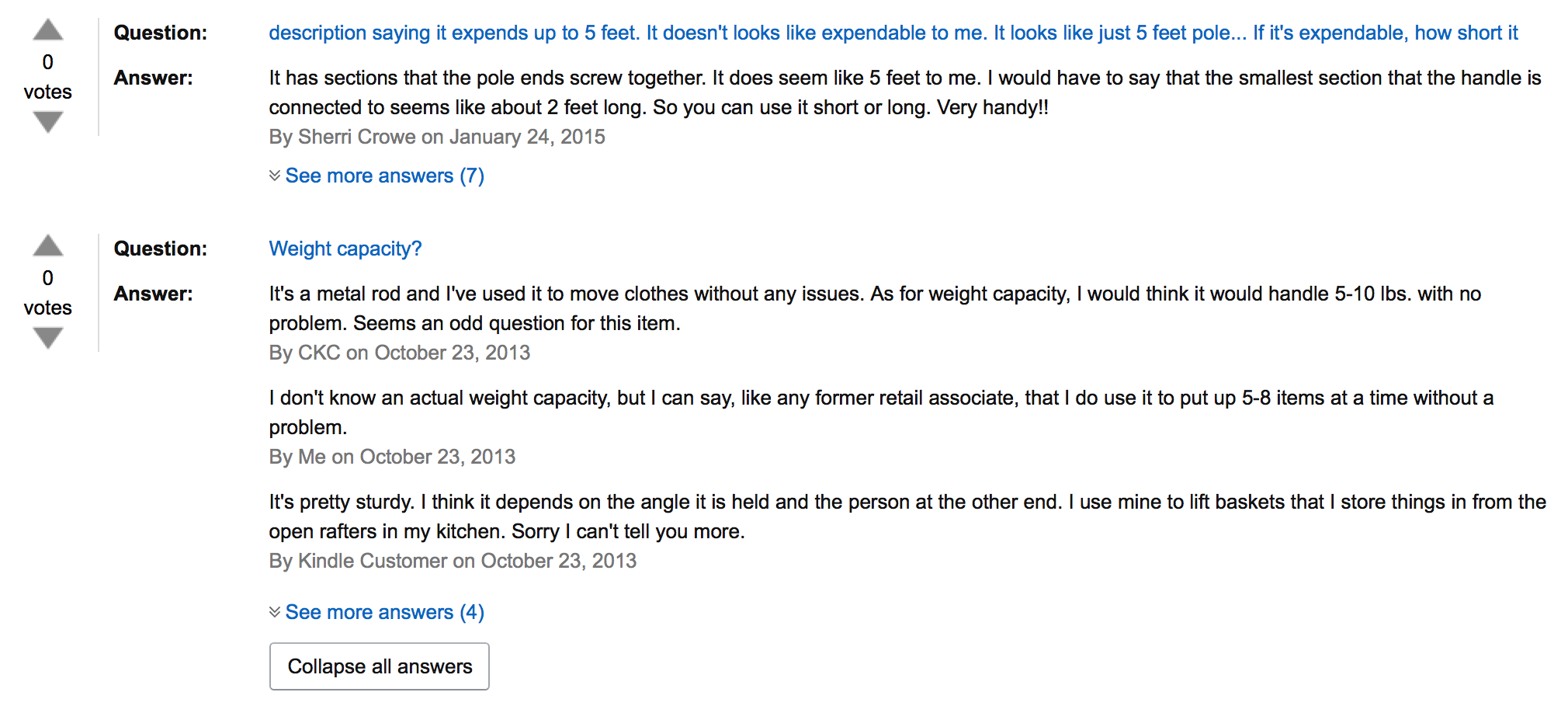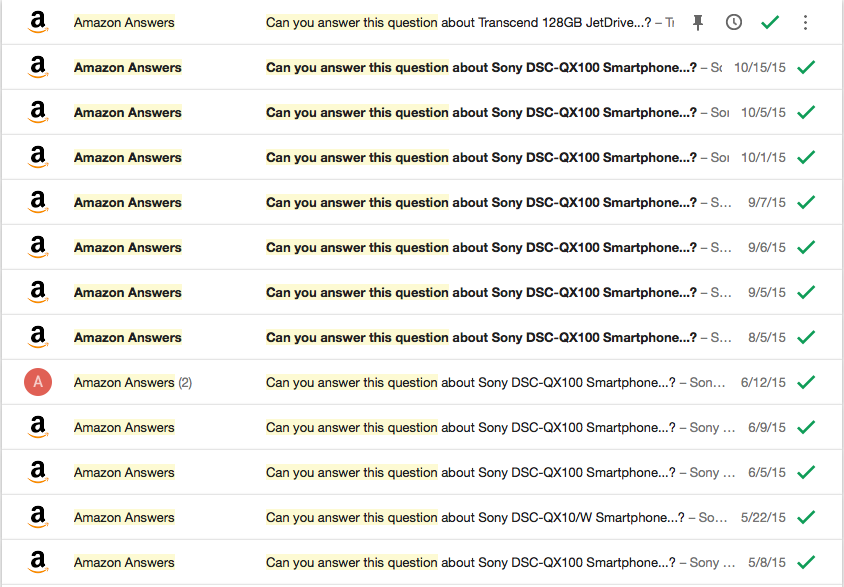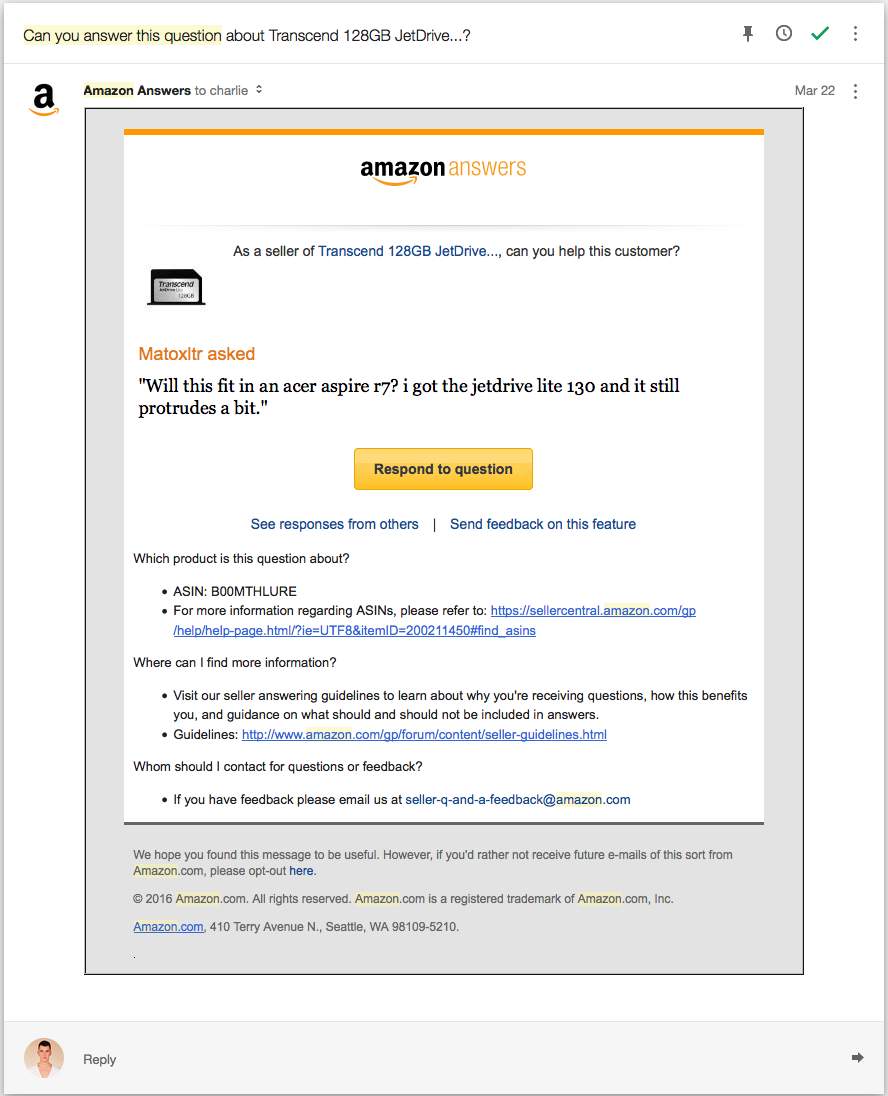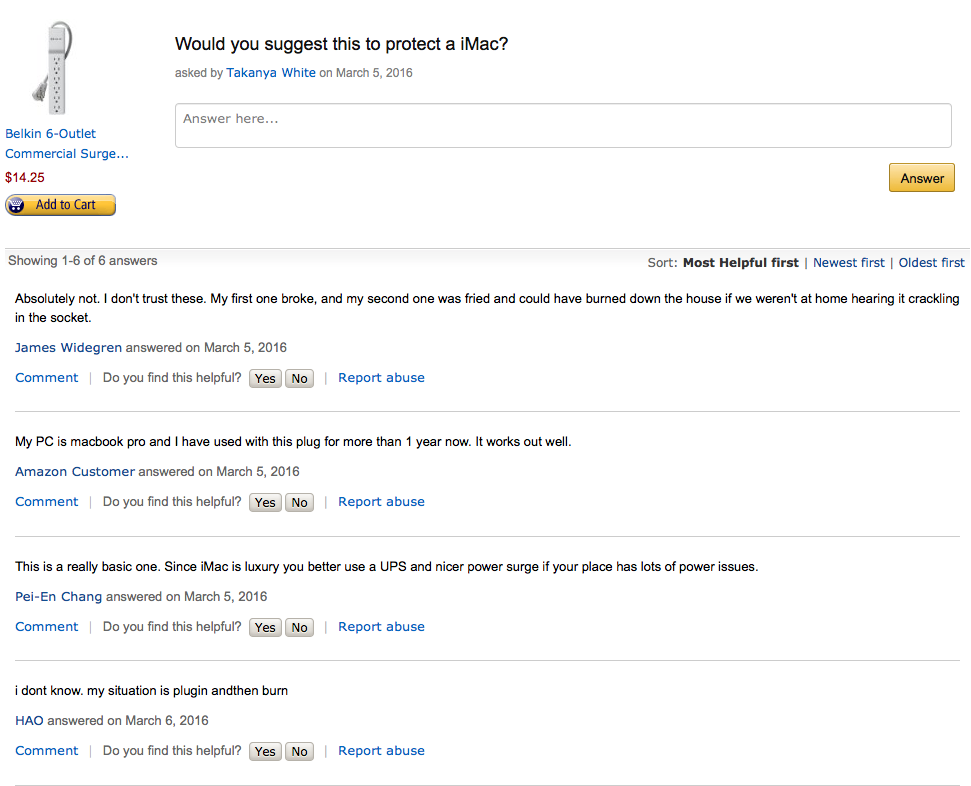Amazon product questions poorly designed
I’ve noticed and commented on this many times, so it should probably be documented so I can remember how hard life was in 2016. The customer answers to product questions on Amazon are mostly useless, thanks to a process flaw on Amazon’s part.
Today was typical. I wanted to get some of those poles used to open and close curtains. I didn’t know what they are called, and a search for “curtain rod” yielded the rods that get mounted to the wall and actually hold the curtain. A few search variations later and I found they are called “drapery pull rods”. I was surprised the cheapest ones were $11 and the ones with Prime shipping were mostly almost $20 each, but I guess Amazon needs to factor in shipping, which is probably disproportionately expensive for a long stick.
Anyway, I settled on some simple 3 foot clear PVC poles and added them to my cart. Then for kicks I searched for “metal pole hook” just to see if there was something cheaper I could use instead. Indeed, I found a bunch of hooks used for reaching clothes and things high up, and it seemed something like this would work:
But then I read some of the reviews and saw people said it breaks really easily, so I decided against it. I glanced at the question answers, though I am accustomed to ignoring them since they are usually useless. This was no exception. It could be so much better!
For people who don’t shop on Amazon a lot, those answers probably seem even more silly. But since I’ve been around the block, I know Amazon tends to send emails to possibly everyone who bought a product when someone asks a question about it. Unsuspecting purchasers get an email that makes it seem like their input is desperately needed.
Clearly people who don’t know much about the product feel the need to try to help, as if someone asked them about the purchase in a bar and they felt compelled to say something, anything. Amazon should probably make it clear you should only answer if you actually know something and can confirm it!
The questions would have such potential if they were somewhat curated and you could see the essential information at a glance. As it is, the popular products might have hundreds of questions, many of which are nearly identical. And the answers are mostly useless, and serve more as sentiment based reviews and are not even close to authoritative. Amazon might as well just call the whole section “reviews”.




























